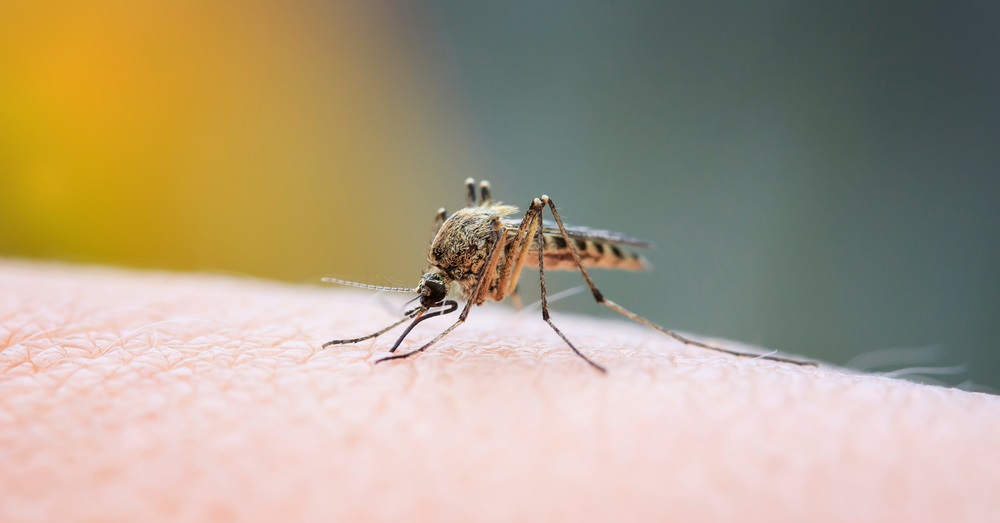Increases in West Nile and Dengue Fever: What to Know and How to Get Tested and Treated

According to a recent press release from Texas Health and Human Services, public health officials are urging citizens to be vigilant in protecting against mosquito bites. Texas confirmed the first case of West Nile virus in the state, along with 10 travel-associated Dengue cases in the state for 2024.
“All of the dengue cases reported in Texas so far in 2024 were acquired while traveling internationally, but a small number of dengue cases have been acquired from mosquito bites in southern Texas in recent years. The Centers for Disease Control and Prevention recently alerted health care providers about the increased risk of dengue virus infections in the United States in 2024 based on an unprecedented number of cases being reported globally and higher-than-expected cases identified among U.S. travelers.”
In fact, as of July 2024, the Texas Department of State Health Services identified nearly 800 mosquito samples infected with West Nile virus in 24 counties. One of those counties is Lubbock County where in September 2024 Lubbock confirmed its first human death due to West Nile virus.
We spoke with Celesta Gibbs, Assistant Professor in Molecular Pathology for the Department of Laboratory Sciences and Primary Care, about the increases the state and country are seeing in West Nile and Dengue, how you can recognize symptoms, and how to get tested and treated.
What are West Nile and Dengue?
They are both mosquito borne diseases, although Dengue can also be transmitted via ticks. Dengue is the most common arboviral-like disease in the world and can be caused by four different Dengue viruses. While both viruses use the mosquito as a vector, Dengue and West Nile use different mosquito species for transmission of the virus.
Ultimately, once a mosquito bites an individual, then that individual can be infected by whichever virus the mosquito is carrying (harboring).
Why are we seeing an increase?
For Dengue, we are currently (so far this year) double from what we saw for the entire year of 2023.
According to Gibbs, the climate is driving some of the changes that we see. “With these warmer summers expanding into the north, it’s encouraging the migration of those insects and allowing them to thrive in environments that they weren’t able to previously,” she explains.
Typically, mosquito borne illnesses are reserved for tropical or subtropical regions, but they are migrating north to places like Florida, Hawaii and even Texas.
Symptoms
Dengue:
- Fever
- Muscle and joint pain
- Headaches
- Weakness
- Pain behind the eyes
- Nausea and vomiting
Gibbs explains that in more severe cases, vomiting may be ongoing, along with fluid buildup and even mucosal bleeding. “Only about 25% actually are going to be that symptomatic, so you could technically get the virus and not be affected.”
The incubation is approximately 3-10 days, but Gibbs explains that if your immune system is strong enough, it could fight the infection before you start to show any symptoms.
West Nile:
- Fever
- Muscle and joint pain
- Headaches
- Weakness
- Pain behind the eyes
- Occasional nausea and vomiting and diarrhea
Gibbs says that less than 1% of cases develop neuroinvasive disease, where it could affect the brain and cause some swelling. “You would first notice stiff neck, sensitivity to light and mental confusion before you actually go in to realize that your brain has been affected by it.”
Testing

Celesta Gibbs, an assistant professor in molecular pathology
Dengue: While in both cases, a blood test would be a way to confirm the diagnosis, with Dengue, they’ll take the serum from the blood and use that. Within the first seven days after symptom onset, you can take the blood sample, isolate the serum from it, and do either nucleic acid amplification (most often RT-PCR), an IgM antibody test, or an ELISA test.
RT-PCR is a molecular test that can use whole blood, serum, or even plasma, and it looks for Dengue viral RNA. As long as it’s present in the sample, that molecular test would detect it. Gibbs explains that anytime that molecular test is positive, it doesn’t require any further confirmatory testing because that is a highly sensitive and specific test.
The antibody test (IgM antibody) reveals if that person has been exposed recently. The test looks for an individual’s reaction to a previous infection, in which case it produces antibodies against it. According to Gibbs, sometimes with those, you do have to do some other confirmatory testing, although it should say that it was at least a recent infection.
An ELISA test evaluates the presence of either antibodies, antigens or proteins. Specifically for Dengue, a provider would use the test to look for one of the viral proteins in the patient’s serum, and that would be indicative of a very current or recent infection.
West Nile: Gibbs shares that providers will use serum or sometimes cerebrospinal fluid and typically lean toward IGM antibody testing, where, again, it would be indicative of an active or very recent infection. “With individuals that are immunocompromised, they might lean on a molecular test since their immune system might not be making antibodies against the virus,” she says.
Treatment
Reasons to go to a doctor and get tested and potentially treated include:
- If you’re showing symptoms
- Have a mosquito bite(s)
- Have traveled to any of the places where outbreaks have been reported
Neither virus has any direct medications to treat, but patients may need supportive care, especially with GI symptoms, leaving them at risk of dehydration amongst other things.
“Because Dengue can cause fluid buildup, it’s kind of a balance with rehydration,” Gibbs says. “Because if you take in too many fluids it could negatively affect your wellness, so it’s good to get some help and have a provider evaluate your urine output.”
Related Stories
The John Wayne Cancer Foundation Surgical Oncology Fellowship Program at Texas Tech University Health Sciences Center Announced
TTUHSC is collaborating with the John Wayne Cancer Foundation and has established the Big Cure Endowment, which supports the university’s efforts to reduce cancer incidence and increase survivability of people in rural and underserved areas.
Making Mental Health a Priority in the New Year
Sarah Mallard Wakefield, M.D., a psychiatrist with Texas Tech Physicians, talks about strategies to combat widespread and growing anxiety.
TTUHSC Dean to be Inducted into the National Academies of Practice as Distinguished Fellow
Gerard E. Carrino, Ph.D., MPH, dean of the TTUHSC Julia Jones Matthews School of Population and Public Health, will be inducted into the National Academies of Practice (NAP) as a Distinguished Fellow of the Public Health Academy.
Recent Stories
The John Wayne Cancer Foundation Surgical Oncology Fellowship Program at Texas Tech University Health Sciences Center Announced
TTUHSC is collaborating with the John Wayne Cancer Foundation and has established the Big Cure Endowment, which supports the university’s efforts to reduce cancer incidence and increase survivability of people in rural and underserved areas.
TTUHSC Receives $1 Million Gift from Amarillo National Bank to Expand and Enhance Pediatric Care in the Panhandle
TTUHSC School of Medicine leaders accepted a $1 million philanthropic gift from Amarillo National Bank on Tuesday (Feb. 10), marking a transformational investment in pediatric care for the Texas Panhandle.
Texas Tech University Health Sciences Center Permian Basin Announces Pediatric Residency Program Gift
TTUHSC Permian Basin, along with the Permian Strategic Partnership and the Scharbauer Foundation, Feb. 5 announced a gift that will fund a new pediatric residency.
